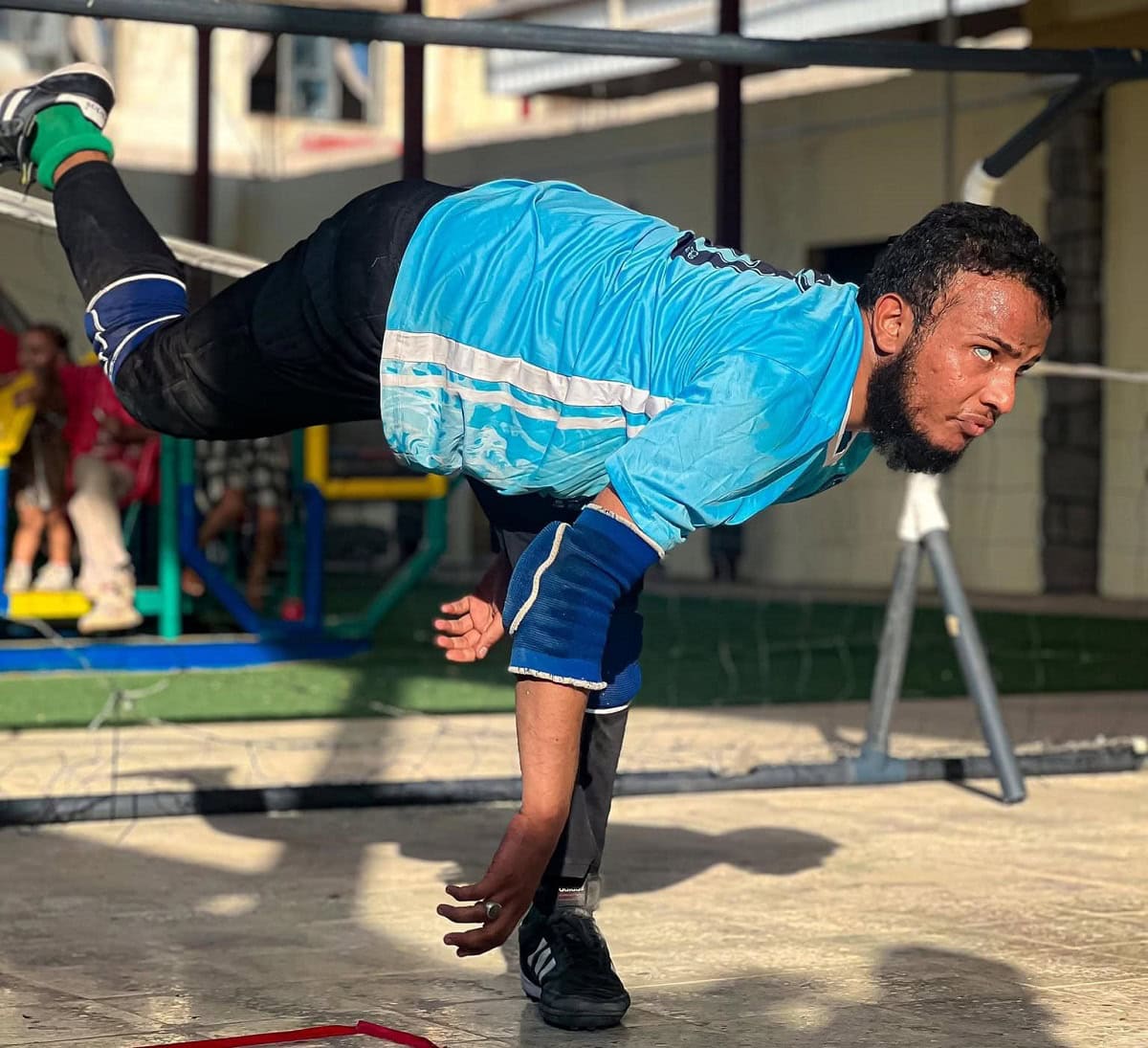
Nogoum Aden (Stars of Aden) Blind Sports Club – (Cropped by South24 Center)
آخر تحديث في: 11-09-2025 الساعة 5 مساءً بتوقيت عدن
|
|
"If sports have proven to be a platform for restoring dignity to persons with disabilities and breaking stereotypes, then investing in them, both institutionally and socially—means opening new windows of hope..."
Fatma Bawazir, Ahmed Fararah (South24 Center)
In a country where the din of war intersects with the silence of neglect, sports remains, for many persons with disabilities, far more than just a physical activity. It is an act of resistance, an expression of existence, and a space of hope amid a reality weighed down by barriers.
Despite limited resources and the absence of sufficient institutional support, inspiring stories emerge from the margins—stories of individuals who turned their constraints into catalysts, and their challenges into motivation, redefining the boundaries of possibility.
Here, sports fields become platforms for dismantling stereotypes, and tournaments deliver a clear message: disability is not the end of the road, but the beginning of a new journey—where achievements are forged through determination.
This report takes readers on a journey between aspiration and action, between hope and accomplishment, documenting the landscape of disability sports in South Yemen and revealing how willpower can triumph even under the harshest conditions.
Pioneering Figures
Rasha: Seeing with the Mind’s Eye
In Mukalla, a young woman charted her path through life despite losing her sight at an early age.
Rasha Khaled Al-Rubaki was born like any other child—running, playing, and dreaming. But a rare skin condition gradually took her vision, and she entered the world of blindness while still very young.
After a break from school due to her health, she joined the Al-Diaa Association for the Care and Rehabilitation of the Blind, where she found a nurturing environment. In seventh grade, she discovered a game that would reshape her life: Chess.
“I started playing chess in seventh grade. I didn’t know I’d fall in love with it… but I found my own world in it,” she told ‘South24’.
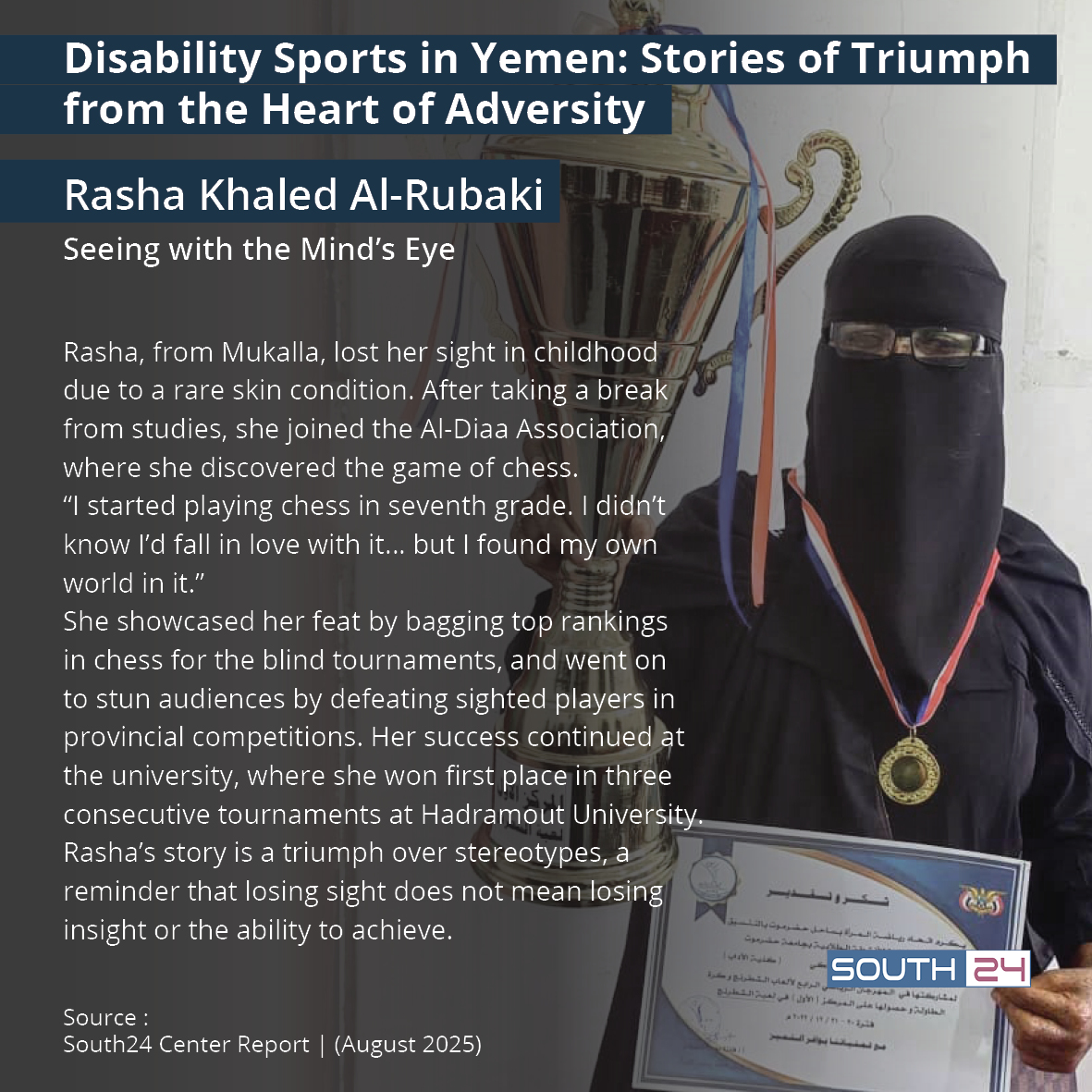
From her first beginner’s tournament to competing against sighted players in provincial championships, Rasha proved that achievement doesn’t require eyes that see—only a mind and heart that know where to place the right piece. At university, she continued to win first place in three consecutive tournaments at Hadramout University, and found herself becoming more engaged with life and society.
Wahb Ali Abdullah Khamees: Defying Silence with Willpower
In Aden, footballer Wahb Ali Abdullah Khamees, from the deaf community, carved his path on to the pitch with unwavering resolve. He began his journey without knowing many deaf athletes, choosing instead to play alongside hearing players, and overcoming the barriers of communication.
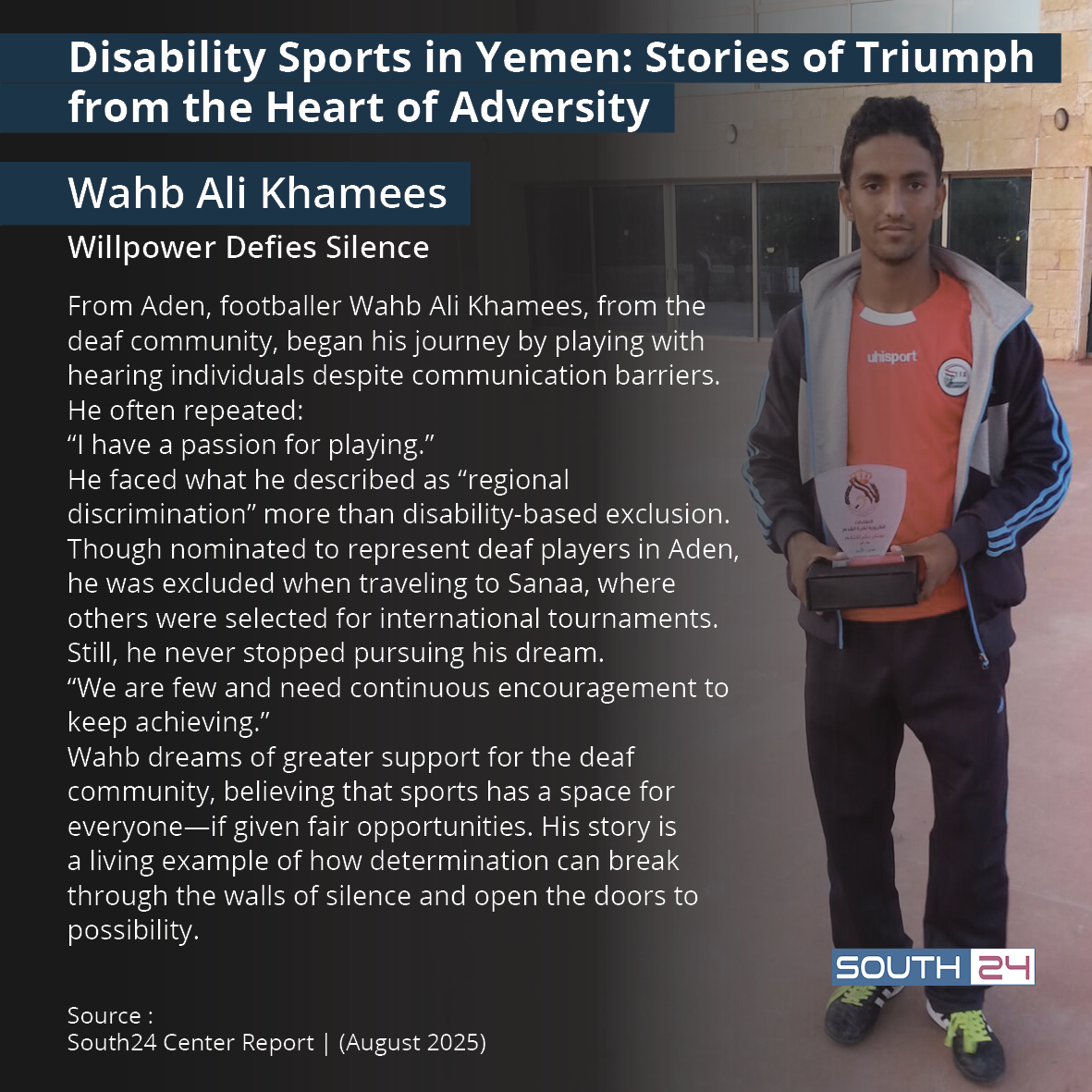
“I have a passion for playing,” he told ‘South24’. With each attempt, he honed his talent and challenged the odds. Wahb faced discrimination, which he described as more regional than disability-based. Though in Aden he was nominated to play with deaf athletes, but when travelling to Sanaa he was excluded from international tournaments, while others were selected.
Still, the obstacles did not deter him. His determination outmatched every barrier, and he continued his athletic journey despite limited support, which was restricted only to external competitions.
“We are few and need continuous encouragement to keep achieving,” he said.
Mohammed Abdulqader Al-Kaf: Goalball Champion
In Tarim, Hadramout, a blind young man refused to let his dreams be extinguished by darkness. After a series of unsuccessful surgeries, Mohammed faced isolation at age seventeen. Yet within him was a determination too strong to be defeated.
He joined the Blind Association in Seiyun in 2007, where he discovered goalball and quickly transitioned to key player.
“You’re a key player,” said his coach after just one throw.
He competed in the 2008 Sanaa Championship amid major challenges: lack of equipment, missing nets, and limited travel support. In 2009, he traveled to Jordan for a goalball league and returned with a bold idea—to establish a similar tournament in Hadramout.
With modest resources, he and his teammates built goalball nets and organized events that brought together sighted and blind players. They maintained top rankings in the 2014 Sanaa Championship and later competed in Arab tournaments in Oman, Egypt, and Bahrain. Each journey reminded him of the resource gap.
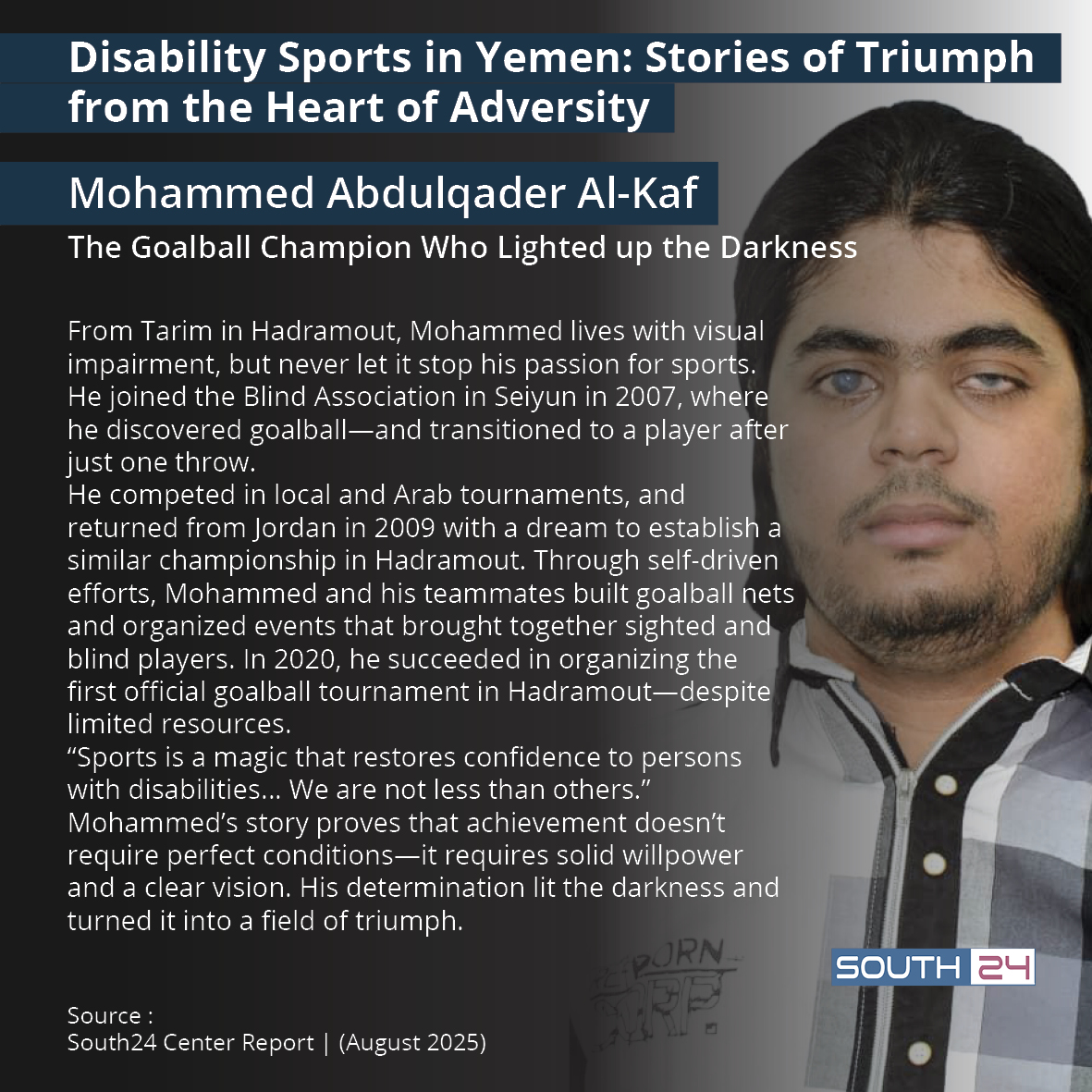
“We’ll build our own teams,” he told ‘South24’. “Sports are a kind of magic that restores confidence to persons with disabilities… We are not less than others. It is only circumstances that shrink before our will.”
In 2020, after convincing local authorities, he organized the first official goalball tournament in Hadramout. Activities paused during the COVID-19 pandemic, but his dreams did not. Today, Mohammed aspires to establish a sports federation for persons with disabilities in Wadi Hadramout, believing his greatest victory has been proving that willpower can shine even in darkness.
Suleiman Al-Murshidi: When Wheelchairs Become Wings To Fly
On a modest court in Hadramout, Suleiman Al-Murshidi moves confidently in his wheelchair, driven by a deep belief that sports can be a gateway to life, not just a side activity.
Born in 1980 with a lower-body disability, Suleiman was passionate about sports from a young age, from swimming to street football.
“I love sports… I used to swim and play football as a kid with other children. Everyone has athletic inclinations that grow with practice,” he told ‘South24’.
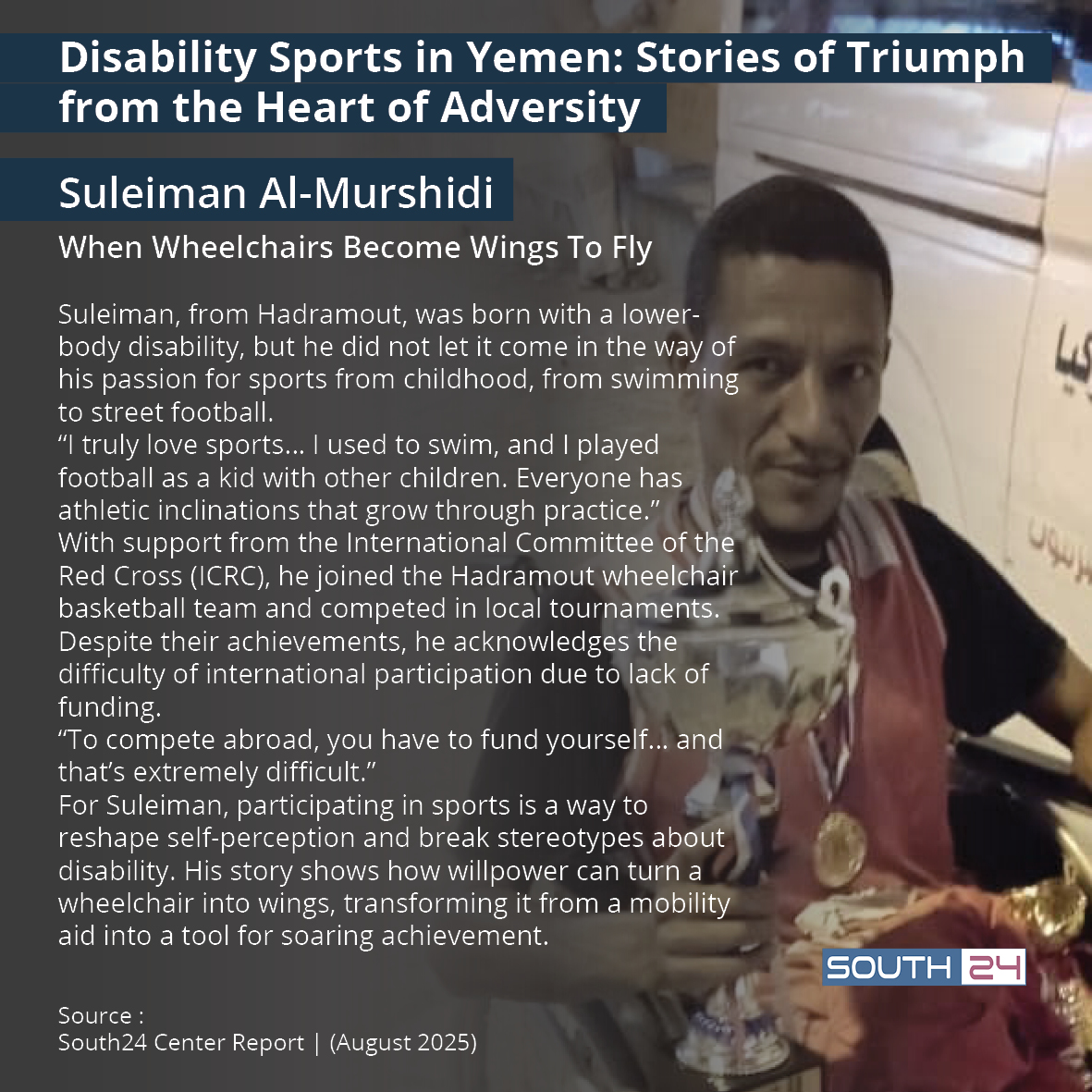
He didn’t know that disability sports had official tournaments until support came from the International Committee of the Red Cross (ICRC) for wheelchair basketball—a globally recognized sport.
He played with the Hadramout team in local tournaments and achieved top rankings. However, he acknowledges the difficulty of funding for international participation.
“To compete abroad, you have to self-fund… and that’s extremely hard.” Suleiman recalled how societal perceptions changed: “They used to mock disabled athletes… Now some have changed their views after seeing the achievements.”
He sees sports as a tool for inclusion and breaking stereotypes, citing the successes of other disabled athletes. His team has organized events like wheelchair races and matches for girls with disabilities, supported by the Ministry of Youth and Sports Office in Hadramout.
Suhair Moqbel Hassan Ali: From the Wheelchair to Victory
In a quiet corner of her life, “emptiness” was the first challenge Suhair faced—not as a discouraging voice, but as the whisper that pushed her to discover herself.
The 28-year-old Suhair lives in the capital, Aden, and is married. From the beginning, the struggle with the feeling of helplessness was real, but her husband’s encouragement sparked her journey into wheelchair tennis.
“Emptiness inspired me to join wheelchair tennis… I loved sports, and my husband encouraged me, so I said: why not?” Suhair told ‘South24’.
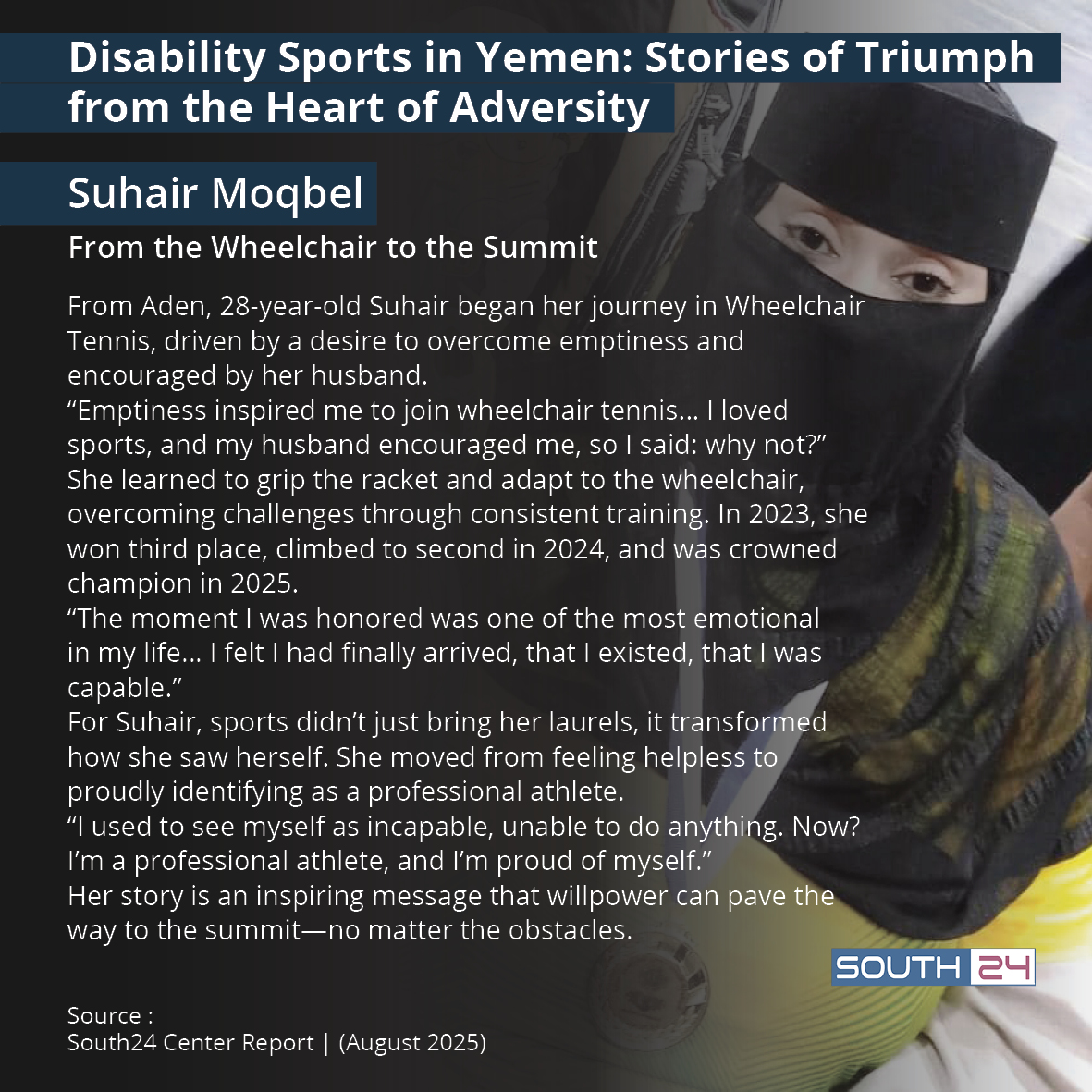
She learned to grip the racket and adapt to the wheelchair on the tennis court, overcoming challenges through daily training. In 2023, she won third place, climbed to second in 2024, and was crowned champion in 2025.
“The moment I was honored was one of the most emotional in my life… I felt I had finally arrived, that I existed, that I was capable. I used to see myself as helpless, unable to do anything. Now? I’m a professional athlete, and I’m proud of myself.”
Hani Omar Obaid Bakeer: Willpower Breaks Disability
Since childhood, Hani from Hadramout was passionate about sports, starting his days playing football as a goalkeeper in his neighborhood.
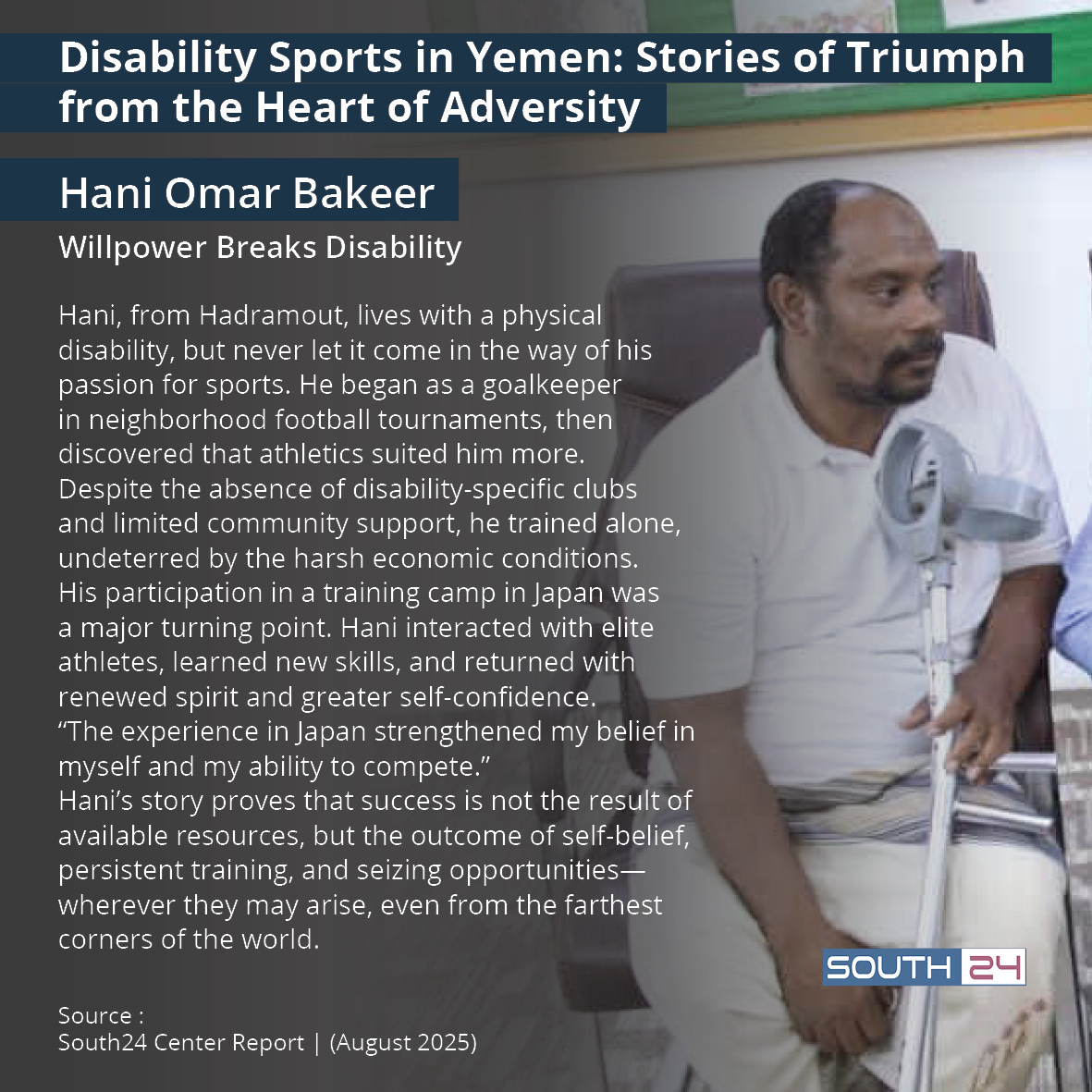
Over time, he became more drawn to athletics, training alone despite his physical disability, relying on his strong will and determination. He faced the absence of clubs for persons with disabilities in Yemen, lack of community support, and harsh economic conditions that posed major challenges to his ambitions.
His experience at a Japanese training camp earlier this year was a turning point. He interacted with top athletes, learned new skills, and returned to Yemen with renewed spirit and greater self-confidence.
Institutional and Organizational Landscape
The General Federation for Disability Sports is the primary executive body for disability sports in Yemen. It oversees local championships, technical training, and international participation.
In an interview with ‘South24’, Hassan Saleh Masjidi, Director of the Youth and Sports Office in Coastal Hadramout, explained that the Ministry of Youth and Sports in Aden supervises over 25 federations, including the Disability Sports Federation, which serves all categories: physical, visual, auditory, and intellectual—across both genders.
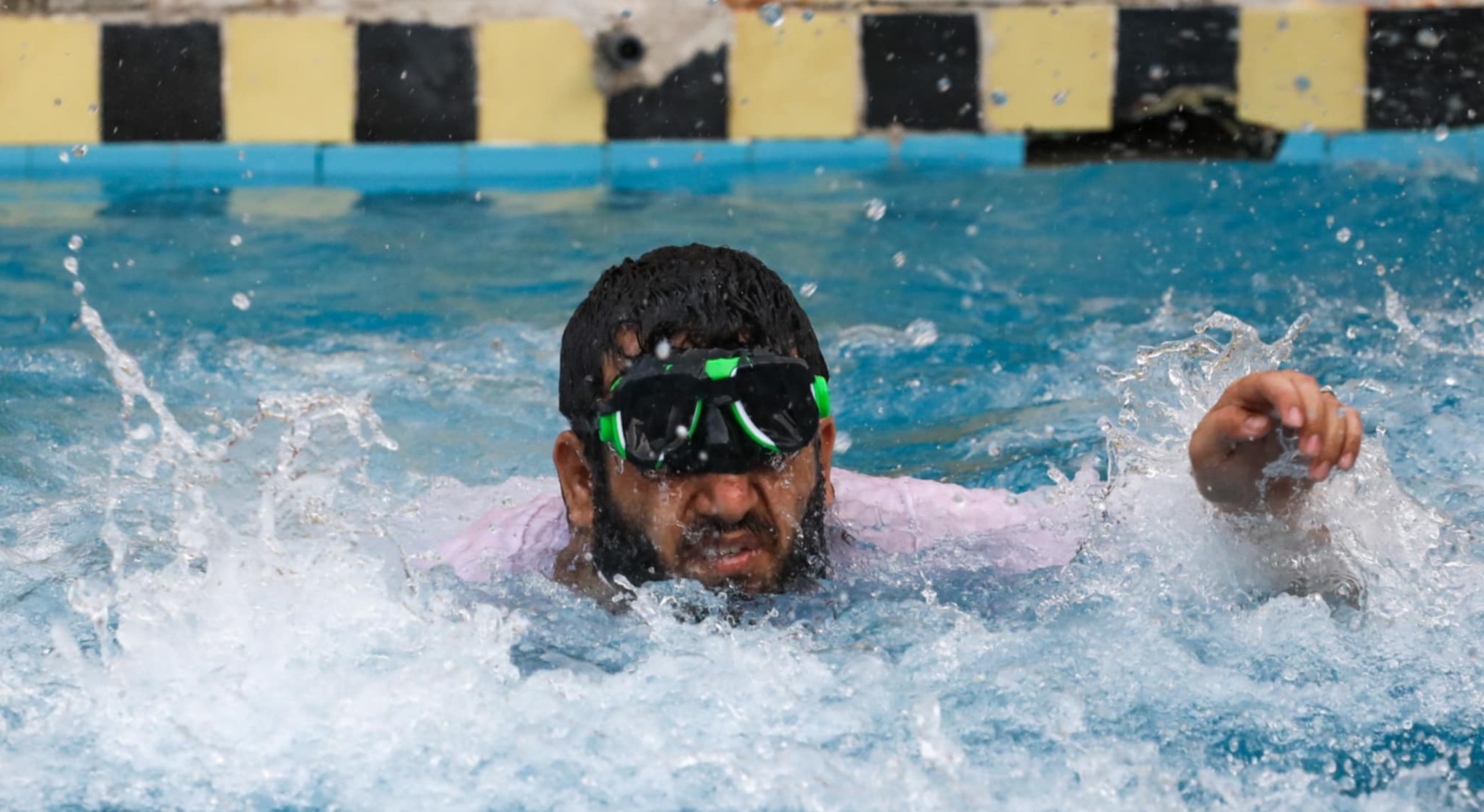
Swimming Championship for the Blind - Aden Stars Club, June 22, 2025 (club's Facebook page)
In 2024, a new leadership was formed for the Federation in Mukalla, headed by Khaled Al-Muallim (visually impaired). He launched activities covering various disabilities, including events for the deaf during the Arab Disability Week, with wide official and media presence.
The Yemeni Paralympic Committee was officially established in 2012 and received recognition from the International Paralympic Committee in November 2015, becoming the official representative of disability sports in Yemen.
Amal Hazaa, Assistant Secretary-General of the Committee, noted that activities and international participation remain extremely limited. “Sometimes, there’s only one activity per year, due to lack of support and incentives,” she told ‘South24’.
Despite domestic marginalization, the committee succeeded in forming wheelchair basketball teams in Sanaa and Mukalla, thanks to support from the International Committee of the Red Cross. It also achieved international success, such as a bronze medal in judo at the 2022 Asian Games, won by visually impaired athlete Shujaa Nashwan.
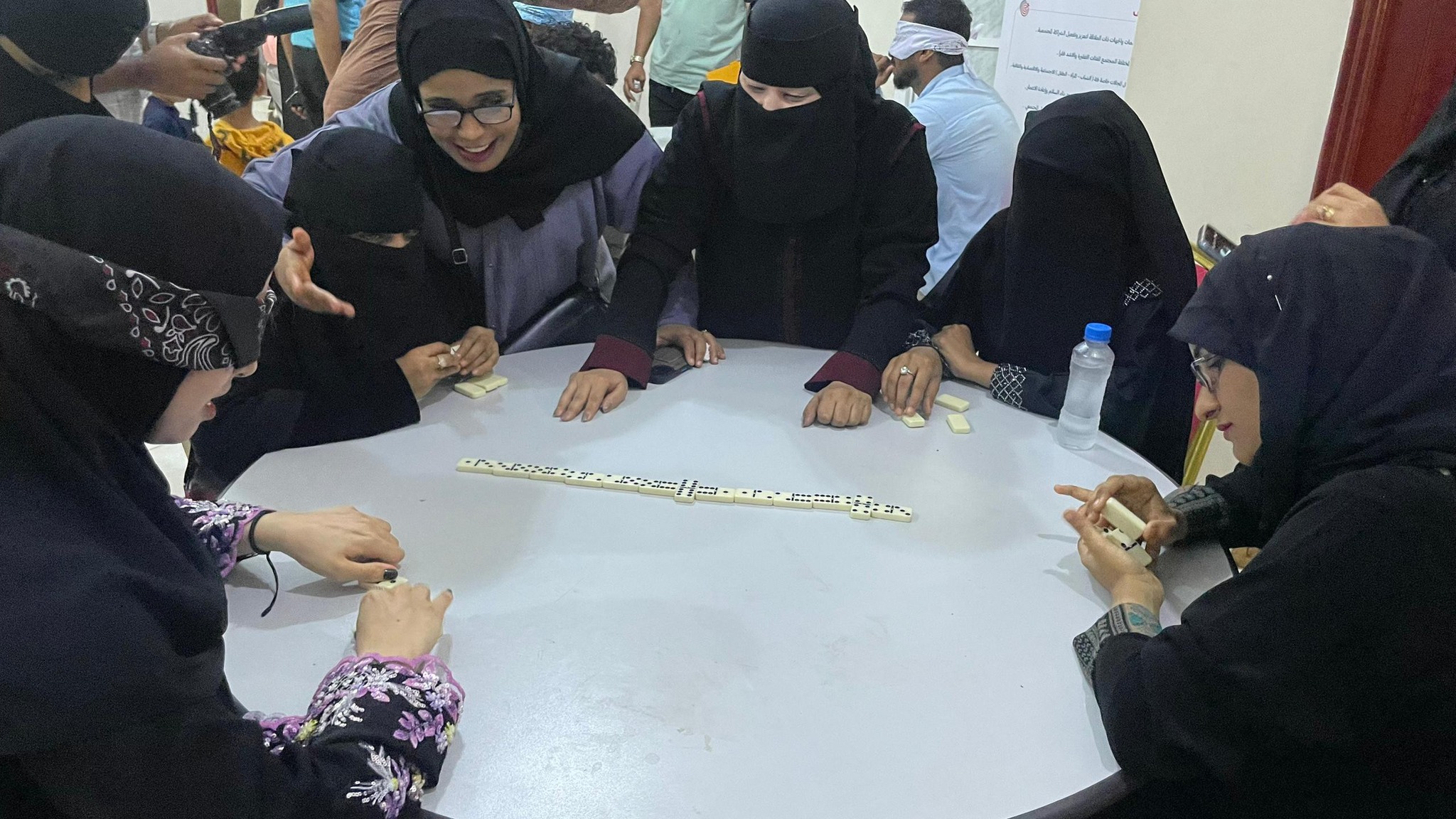
Dominoes Game - Aden Stars Club for the Blind, August 2, 2025 (club's Facebook page)
Farhan Al-Muntasir, Director of Federations and Clubs at the Yemeni Ministry of Youth and Sports, noted that sports in Yemen face the same challenges as society at large—especially disability sports.
He added, in his interview with ‘South24’, that the ministry issued a decree this year establishing the Yemeni Amputee Football Federation, in a significant step toward official recognition and support for this sport domestically.
As part of international cooperation, he pointed out that the ministry began building a partnership with the International Committee of the Red Cross, which led to the creation of a tennis team for persons with disabilities in the capital, Aden.
The ministry provides an indoor facility for the team’s training, while the Red Cross covers the costs of coaches and equipment. The team includes between 12 and 18 players who train regularly.
Al-Muntasir added: “We were keen to ensure that the team would be the result of joint cooperation between the ministry and civil society organizations working in the field of disability, in coordination with the Red Cross, to guarantee sustainable training and technical support.”
He confirmed that the ministry is seriously committed to supporting disability sports at the level of specialized clubs, such as the Blind Club, the Deaf Club, the Physically Disabled Club, and the Amputee Club.
In addition to the Ministry of Youth and Sports and the General Federation, the Education, Youth, and Sports Authority of the Southern Transitional Council has emerged as an influential actor in promoting disability sports—particularly in Hadramout and Aden. The authority has recently sponsored and organized dedicated events, such as the “Champions of Will” League for persons with disabilities, honoring the winners and supporting specialized clubs like the “Stars of Aden” Blind Sports Club.
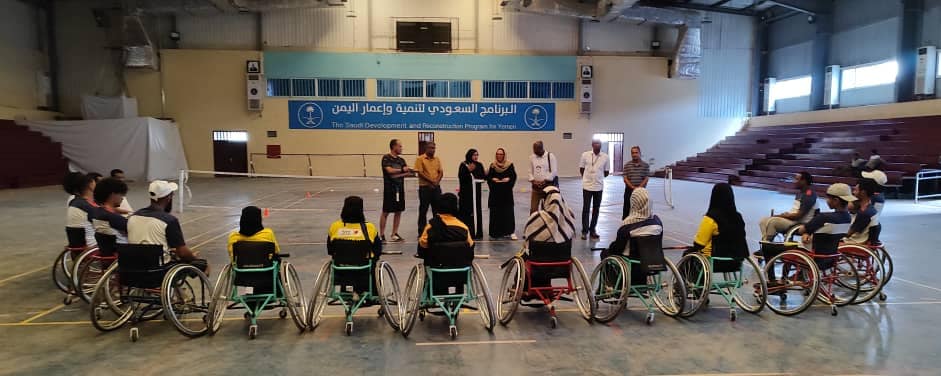
From the wheelchair tennis team's training in Aden - Yemen Tennis Federation, October 24, 2024 (Federation's Facebook page)
Conclusion
The stories of Rasha, Wahb, Mohammed, Suleiman, Suhair, Hani, and others reveal that disability in South Yemen has never been a barrier to ambition—but rather a driving force to redouble effort and transform deprivation into tangible achievements. These individuals place a moral and legal responsibility on society and the state to support them—not as exceptions, but as integral members of the national fabric.
If sports have proven to be a platform for restoring dignity to persons with disabilities and breaking stereotypes, then investing in them—both institutionally and socially—means opening new windows of hope in a country burdened by war and crises. These champions are not asking for the impossible, but for a fair opportunity to continue what they’ve started: writing a different history—one that proves willpower always comes before resources.